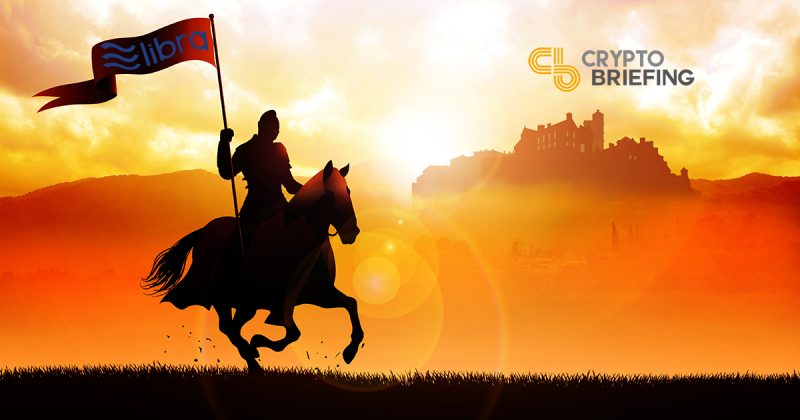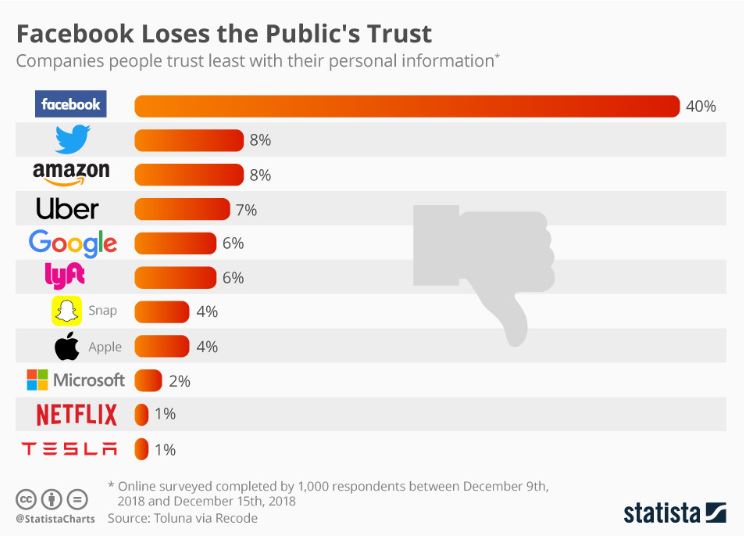
Could Libra Be Revived By A Shining Armored Knight?
Libra, Mark Zuckerberg's latest flop in the making.
Mark Zuckerberg couldn’t possibly have imagined it would be easy. Having ostracized the crypto community by banning their ads on his platform, the Facebook CEO went on to announce the intention to create a cryptocurrency of his own in Libra.
Crypto-community scorn is one thing. Libra is, without doubt, a cheap shot at the Winklevoss twins, who operate the Gemini exchange. and who gained fame originally for suing Facebook, alleging, as Wired puts it, “that Zuckerberg agreed to help the twins with their social network project, only to slowroll them and launch his own project instead.”
It also faced a very swift backlash from lawmakers around the world. France and Germany were quick to ban it if it were to eventuate, and the Swiss-based association began leaking key members. First PayPal. Then Mastercard, Visa, Stripe, and Mercado Pago, with suggestions of regulatory pressure encouraging those exits. Zuckerberg could well be flogging a dead horse.
As Jenny Corlett from the Aspectus Group told Crypto Briefing, “At the recent World Blockchain Forum in New York, one of the speakers asked who in the audience thought Libra was likely to succeed in taking cryptocurrencies mainstream. About half the room raised their hands. He then followed with “who wants it to be Facebook that achieves this?” All hands were hastily lowered.”
It was an early sign of the many obstacles to come.
Peak Libra Hatred
Lawmakers demonstrated peak Libra hatred on October 23rd, when the U.S. House of Representatives Committee on Financial Services grilled Facebook’s CEO Mark Zuckerberg.
As Zuckerberg testified himself on the creation of a digital currency to serve the unbanked, “I’m sure there are a lot of people who wish it was anyone but Facebook who were helping to propose this.” The full transcript of the testimony can be found here.
Zuckerberg’s rationale for Libra during his opening remarks at the hearing was to bank the unbanked, which the World Bank counts at 1.7 billion adults. Many of those are in the developing world. Smartphone penetration worldwide sits at over 40 percent and is surging in developing countries, rising around ten percent annually in a number of countries in Africa.
It seems intuitive, then, with mobile and internet access exceeding banking service access, that a new digital way to transmit money is, prima facie, a good idea. Indeed, many in the developing world have leapfrogged legacy banking altogether, with surging mobile and then smartphone rates.
So Why The Hostility?
Facebook is too powerful a corporation for governments to ignore. Were significant numbers of people to abandon national fiat currencies and opt for Libra to transact, it would leave central banks with substantially less leverage over monetary policy to help guide economic activity.
According to a December 2018 study by Statista, Facebook was the least trusted tech company in the world. By a long shot. Forty percent of respondents said they trusted Facebook least with their personal data. Twitter and Amazon tied for second at eight percent.

Facebook has done everything in its power to earn that mistrust. From the Cambridge Analytica scandal, its ongoing problems managing political advertising, banning crypto ads ahead of creating its own, to data breaches, the Menlo Park-based behemoth has continuously trodden down the wrong pathways.
If one is to accept the potential benefits of Libra, which are debatable anyway in a sector with over 3,000 cryptocurrencies, perhaps the project was doomed since its inception for no other reason than the horse was being ridden by the wrong jockey.
Motives also need to be examined. If the company’s aim was driven by the malevolent desire to bank the unbanked, why couldn’t it incorporate an existing crypto asset into its infrastructure to allow seamless cross-border payments, micro or macro? Twitter has proven how simple that is to do by hosting torching campaigns.
They are novelties, yes. But they did serve to prove the viability of cryptocurrencies to perform seamless microtransactions.
Could the IMF Introduce a Libra Style Crypto?
Given that Libra betrays many of the now eleven-year-old central tenets of the cryptocurrency revolution anyway, would a project in a similar vein be better in the hands of, if not a particularly well-trusted entity, at least one with the expertise and heft to manage it?
It is a little known fact that the IMF has its own currency, of sorts. The body’s internal accounting unit, Special Drawing Rights (SDRs), are “supplementary foreign exchange reserve assets defined and maintained by the International Monetary Fund… [that] represent a claim to currency held by IMF member countries for which they may be exchanged.”
SDRs are valued by reflecting “a weighted average of the world’s leading currencies.” And they are not immune to volatility, moving 20 percent against the U.S. dollar in 2015, for example.
An IMF-managed Libra-esque cryptocurrency flies in the face of the promise of decentralization and censorship-resistance. But so does Libra. And despite the Financial Stability Board’s cautious attitude toward stablecoins, if governments worldwide do predict the imminent threat of a march toward crypto and away from government-issued currency, the very least they could do is attempt to ease one of the pain points of the current monetary system, which is cross-border transactions.
How the Libra fiasco works out from here is anyone’s guess at the moment. One can’t help but wonder, however, if the Libra horse will actually cross the finishing line at all.
Easing global payment bottlenecks is a compelling idea if that’s indeed its aim. But with little else appealing about it, Libra just tackles a problem solved eleven years ago. Perhaps there isn’t a jockey in the world that stood a chance of riding Libra down the straight.
